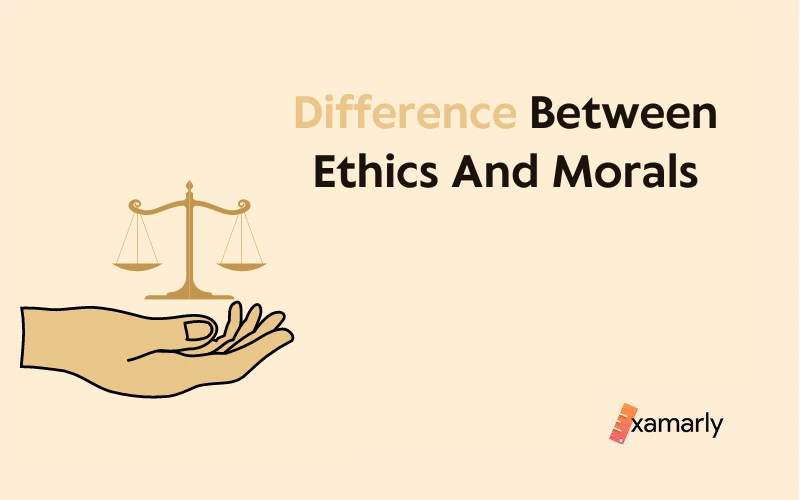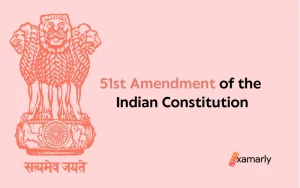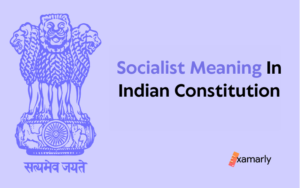Have you ever found yourself questioning the actions of a company or individual, wondering how they could possibly justify their behavior? The answer may lie in the difference between ethics and morals.
It’s a common misconception that these two concepts are one and the same, but in reality, they are distinct and play a vital role in shaping our society. Ethics refers to the principles and values that govern the behavior of individuals and organizations, while morals are the personal beliefs and values that guide an individual’s actions.
In this discussion, we will dive deep into the intricacies of these two concepts, exploring how they shape the way we view right and wrong in our society and how they impact our behavior and decisions. We will also examine how these concepts can sometimes be in conflict, and how a deep understanding of the differences can help us navigate ethical dilemmas.
Join us as we delve deeper into the world of ethics and morals.” This piece of writing will beneficial for the UPSC Preparation.
- Difference Between Ethics And Morals
- Concept of Ethics
- What Are Morals?
- Source Of Principles
- Consistency And Flexibility
- Conflicts Between Ethics And Morals
- Importance of these two values
- Conclusion
- FAQs On Ethics Vs Morals
- What Is An Ethical Code Of Conduct?
- Are Morals Consistent?
- Where Does Morality Come From?
- Can A Person Be Moral But Not Ethical?
- What Are The 4 Types Of Ethics?
- What Are The Common Examples Of Ethics?
- What Is The Relationship Between Ethics And Morality?
- Are There Any Major Differences Between Morals And Ethics?
- Write The Similarities Between Ethics And Morals.
- Define Moral Codes.
- What Is Morality?
Difference Between Ethics And Morals
| Basis of Comparison | Ethics | Morals |
|---|---|---|
| Originate | From the Greek term ethos, the word ethics was derived. A character is what is meant by the term “ethos.” | The Latin word Mos is the source of the word morals. |
| Nature | Principles and values that govern behavior of individuals and organizations | Personal beliefs and values that guide an individual’s actions |
| Basis | Rational principles and often developed by organizations societies or cultures | Personal beliefs and may vary from person to person, culture to culture |
| Role | Provide a framework for decision-making and are intended to be universal | Guide personal choices and align with individual’s values and beliefs |
| Source | The source of ethics can evolve and change over time. Legal and regulatory frameworks, professional codes of conduct, and organizational policies can be updated and modified to reflect changing societal values and expectations. Ethics is typically related to the legal, medical, or business fields. A religious association is not present with ethics. | Often derived from personal experiences and upbringing. The concept of morality is often associated with religious practices. |
| Perspective | Ethics are relative to the perspectives of those around us. | Morality is viewed from an individual’s point of view. |
| Flexibility | The ethics may shift depending on the circumstances. Because of this, ethics have some room for flexibility. | Any shift in morality is directly proportional to any differences in an individual’s outlook. |
| Enforcement | Typically enforced by laws and regulations | Self-enforced by individuals |
| Impact | Affects the behavior of individuals and organizations | Affects the behavior of individuals |
| Context | Often used in the professional or societal context | Often used in the personal or individual context |
| Change | Can change over time and across cultures | Can change over time with personal growth and experiences. |
Concept of Ethics
Ethics refers to the principles and values that govern the behavior of individuals and organizations. It is the branch of philosophy that deals with moral principles and values and how they should guide behavior.
Ethics is concerned with questions of right and wrong conduct, good and bad, and fairness and justice. It provides a framework for decision-making and guides individuals and organizations on how to act in certain situations.
Ethics can be influenced by religious teachings, philosophical principles, cultural and societal norms, legal and regulatory frameworks, and professional codes of conduct. It can also change over time and vary across different contexts and cultures.
Some ethical principles are:
- Truthfulness
- Honesty
- Loyalty
- Respect
- Fairness
- Integrity
What Are Morals?
Morals, also known as moral values, refer to the personal beliefs and values that guide an individual’s actions and moral behavior. These beliefs and values are unique to each person, shaped by their experiences, upbringing, and personal perspectives.
They can include principles such as honesty, compassion, fairness, and respect. Morals are the foundation of an individual’s personal code of conduct and shape their understanding of what is right and wrong, good and bad, and fair and unfair.
Unlike ethics, which are often more formalized and universal, morals can vary widely among individuals and cultures. They are not always based on rational principles, but rather on an individual’s personal beliefs and experiences.
For example, one person may have a strong moral belief in nonviolence, while another may believe in the right to self-defense. These differing moral beliefs can lead to different actions and decisions even when faced with similar situations.
Morals are self-enforced by individuals, they are not enforced by external institutions like laws or regulations, although they can be influenced by cultural, religious, or philosophical teachings. Furthermore, morals can change over time as an individual’s beliefs and values evolve, and they can also be affected by new experiences and perspectives.
In summary, morals are personal, unique, and subject to change, they shape the way an individual perceives the world and guides their actions, they are self-enforced and can be influenced by cultural, religious, or philosophical teachings
Source Of Principles
Ethics: The institutions, communities, or cultures that a person belongs to give ethics, which are external standards. For instance, regardless of their personal preferences or views, surgeons, police officers, and lawyers are all required to abide by the ethical standards established by their professions. Ethics can also be thought of as a social structure or as a code of conduct.
Morals: The culture or society can also have an impact on morals, but ultimately, morals are personal values that people develop and uphold.
Consistency And Flexibility
Consistency and flexibility are two important aspects to consider when discussing ethics and morals.
Consistency refers to the idea that an individual’s or an organization’s ethics and morals should remain consistent over time and across different situations. For example, an individual who consistently adheres to the principle of honesty in all their interactions, whether personal or professional, can be considered consistent in their ethical beliefs.
Similarly, a company that maintains a consistent commitment to protecting the environment and implementing sustainable practices can be considered consistent in their ethical values.
Flexibility, on the other hand, refers to the idea that ethics and morals should be adaptable to changing circumstances. For example, an individual may have a personal moral belief in nonviolence, but in certain extreme circumstances, they may find it necessary to use force in self-defense.
In this case, their moral belief in nonviolence is balanced with the flexibility to adapt to the situation at hand. Similarly, an organization may have a code of conduct that prioritizes customer satisfaction, but in a crisis, the organization may have to make difficult choices that prioritize employee safety over customer satisfaction.
In summary, both consistency and flexibility are important aspects to consider when discussing ethics and morals. Consistency refers to maintaining a consistent set of ethical principles and values, while flexibility refers to being adaptable to changing circumstances.
Conflicts Between Ethics And Morals
Conflicts between ethics and morals can arise when an individual or organization faces a situation where their ethical principles and moral beliefs are in opposition. This can lead to difficult choices and dilemmas, as the individual or organization must weigh competing values and determine the course of action that aligns with their overall ethical framework.
For example, a healthcare professional may have a moral belief in preserving the sanctity of life, but may also have an ethical duty to alleviate suffering and provide comfort to the terminally ill. In this case, the healthcare professional may find themselves in a conflict between their moral belief and their ethical duty and may have to make a difficult choice about how to proceed.
Similarly, a company may have a moral belief in social responsibility and environmental stewardship, but may also have an ethical duty to maximize profits for shareholders. In this case, the company may find itself in a conflict between its moral belief and its ethical duty and may have to make difficult choices about how to balance these competing values.
For example, a person may have a personal moral belief that lying is always wrong, but as a lawyer, they may have an ethical duty to defend their client’s case and present evidence that may not be entirely truthful. In this scenario, the lawyer’s personal moral belief in honesty conflicts with their professional ethical duty to defend their client, and they may have to make a difficult choice on how to proceed.
Another example can be an individual who has a personal moral belief in nonviolence and peaceful resolution, but as a soldier, they may have an ethical duty to use force to protect their country, where the individual’s personal moral beliefs conflict with their professional ethical duty.
It’s worth noting that conflicts between ethics and morals are not limited to professional or organizational contexts, they can also occur in personal life. An individual may have a moral belief in forgiveness, but may also have an ethical duty to hold others accountable for their actions.
In summary, conflicts between ethics and morals can arise when an individual or organization faces a situation where their ethical principles and moral beliefs are in opposition. These conflicts can lead to difficult choices and dilemmas, as the individual or organization must weigh competing values and determine the course of action that aligns with their overall ethical framework.
Importance of these two values
Ethics and morals are both important values that play a crucial role in shaping our society and guiding our behavior.
Ethics provide a framework for decision-making and are intended to be universal. They help to establish standards of behavior and provide guidance on how to act in certain situations. Ethics play a critical role in professional and organizational contexts, helping to ensure that individuals and organizations act in a responsible and fair manner.
They also help to promote trust and integrity in society and are essential for maintaining a just and fair society.
Morals, on the other hand, are personal beliefs and values that guide an individual’s actions and behavior. They serve as the foundation of an individual’s personal code of conduct and shape their understanding of what is right and wrong, good and bad, and fair and unfair.
Morals play a critical role in personal life, guiding individuals to make choices that align with their values and beliefs, and helping them to navigate ethical dilemmas.
Both ethics and morals are essential for promoting positive and constructive behavior, guiding individuals and organizations to act with integrity and fairness, and creating a stable and just society. They are fundamental for human behavior, and their importance cannot be overstated.
Conclusion
In conclusion, the difference between ethics and morals may seem subtle at first glance, but they play a crucial role in shaping our society and guiding our behavior. Ethics provide a framework for decision-making and are intended to be universal, while morals are personal beliefs and values that guide an individual’s actions.
Both ethics and morals can be influenced by religious teachings, philosophical principles, and cultural and societal norms, but ethics are often more formalized and enforced by laws and regulations, while morals are self-enforced by individuals.
It’s important to remember that ethics and morals are not always in harmony, and individuals and organizations may face ethical dilemmas where they must choose between competing values. In such situations, a deep understanding of the difference between ethics and morals can help us navigate these challenges and make choices that align with our values and beliefs.
In this discussion, we have explored the intricacies of ethics and morals and how they shape our society and impact our daily lives. We hope that this has provided a deeper understanding of these concepts and the role they play in guiding our behavior and decision-making.
Ethics and morals are fundamental in shaping the way we live and interact with others, and by understanding the difference between them, we can strive to make our world a better place for all.
FAQs On Ethics Vs Morals
What Is An Ethical Code Of Conduct?
An ethical code of conduct is a formal set of guidelines that outlines an individual’s or an organization’s ethical principles and values. It serves as a framework for decision-making and sets standards for behavior. For example, a company may have a code of Ethics that includes guidelines on honesty, integrity, and fair treatment of employees, while an individual may have a personal ethical code of conduct or ethical rules that includes principles such as respect, empathy, and responsibility.
Are Morals Consistent?
Moral consistency can vary among individuals and can be influenced by different factors such as culture, religion, personal experiences, and change over time. Some individuals may have a consistent set of moral beliefs that guide their behavior, while others may have a more flexible set of beliefs that can change or adapt depending on the situation.
Where Does Morality Come From?
Humanists believe that humanity is where our moral compass and core values originate. Morality has its roots in human nature. Our biology and cultural evolution have produced morality.
Alternatively, when it comes to the question of where morality originates, various schools of thought exist. Some people think it comes naturally to us and is something we are born with. Some people consider it to be a skill that is acquired via socialization and experience. Still, others are of the opinion that it is a product of both the natural environment and the experiences of the individual’s upbringing.
Can A Person Be Moral But Not Ethical?
Yes, it is possible for a person to be moral but not ethical. A person may have a strong set of personal moral beliefs, but these beliefs may not align with the formal principles and standards of ethics.
What Are The 4 Types Of Ethics?
Normative ethics, applied ethics, meta-ethics, and descriptive ethics are the four primary subfields of ethics.
What Are The Common Examples Of Ethics?
A few of the most prevalent personal ethics that many professionals adhere to are illustrated by the following examples:
a. Honesty is a value that many people place a high value on. This code of ethics follows a person from their personal life into their work life and ensures that they are ethical in all circumstances.
b. Another shared personal value among many professionals is loyalty. People who uphold a personal code of loyalty show reliability and fidelity in all of their interactions and can be relied upon to uphold their loyalty in all actual situations.
What Is The Relationship Between Ethics And Morality?
Ethics and morality are related but distinct concepts. Ethics, also known as moral philosophy, refers to the principles and values that govern the behavior of individuals and organizations, providing a framework for decision-making and guiding behavior. Morality refers to personal beliefs and values that guide an individual’s actions and behavior. Morality frequently rests on instinct or religious beliefs, but ethics typically rests on logical reasoning and a common set of values. However, ethics tend to be more formalized and universal, whereas morality is more personal and can vary among individuals and cultures. They may overlap but can also be in conflict, in such cases individuals and organizations may have to make difficult choices between competing values.
Are There Any Major Differences Between Morals And Ethics?
Ethics and morals are related concepts but have distinct differences. Ethics refers to the principles and values that govern the behavior of individuals and organizations. They provide a framework for decision-making and are intended to be universal. On the other hand, morals are personal beliefs and values that guide an individual’s actions and behavior. They are often based on personal experiences and may vary from person to person, culture to culture. Ethical decisions tend to be more systematic and formalized, while moral decisions are more personal and subjective. Both ethics and morals play a crucial role in determining our behavior and decisions, but they have different natures, basis, and roles.
Write The Similarities Between Ethics And Morals.
Ethics and morals are similar in several ways:
Both ethics and morals guide behavior and decision-making
Both can be influenced by religious teachings, philosophical principles, and cultural and societal norms
Both play a crucial role in shaping society and promoting positive and constructive behavior
Both can be a source of personal or professional guidance
Both can be used to evaluate actions and decisions as right or wrong, good or bad, fair or unfair
Both can be used to navigate ethical dilemmas or moral dilemmas.
Define Moral Codes.
A moral code is made up of precepts that categorize behaviors into right and wrong, acceptable and supererogatory, prohibited and necessary, and morally significant or insignificant.
What Is Morality?
Morality is a code of behavior for conduct that is typically founded on religious principles, which frequently guide our moral decisions.






